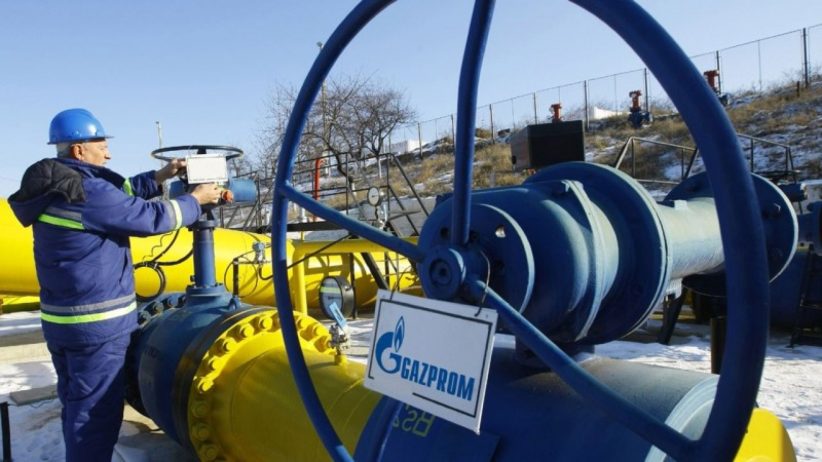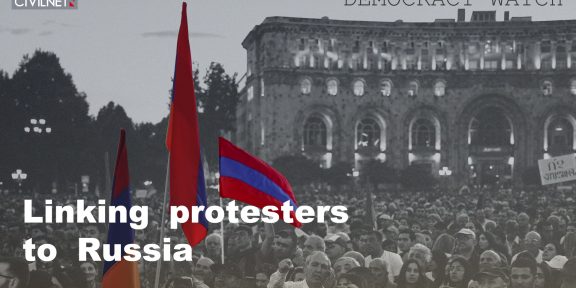By Mark Dovich
A senior Armenian official said Monday he expects Russia to continue supplying his country with natural gas at prices far below international market value through 2031, even as ties between Yerevan and Moscow continue to fray.
“There are very high chances natural gas prices will remain the same for at least another eight years, as long as there are no major geopolitical and market changes,” Hakob Vardanyan, Armenia’s deputy infrastructure minister, told lawmakers on parliament’s Eurasian affairs committee. “Our work is aimed at using every opportunity to keep gas prices where they are.”
There was no immediate reaction from Russia to Vardanyan’s remarks, which came as relations between Yerevan and Moscow continue to worsen dramatically.
What’s the background?
A long-standing arrangement between the Armenian government and Gazprom, the Russian state-owned energy giant that holds a monopoly on the country’s gas network, allows Yerevan to buy gas from Moscow at a price of about $170 per thousand cubic meters, far below international market value.
Last year, Russia pumped some 2.7 billion cubic meters of gas into Armenia, according to figures provided to CivilNet by Armenia’s infrastructure ministry, accounting for about 87% of the country’s total gas imports. The remainder came from Iran under a long-term gas-for-electricity swap deal with that country, though notably, Gazprom also owns that pipeline.
The agreement granting Gazprom exclusive rights to distribute gas across Armenia runs through 2043. The energy swap deal with Iran is in force until 2030.
Despite producing more electricity every year than it uses — in large part thanks to a still-running Soviet-era nuclear power plant — Armenia imports all of its fossil fuels.
Gazprom paid upwards of $120 million in taxes in Armenia last year, according to the company’s local subsidiary, representing about 2% of the country’s total tax earnings.
Producers dash Armenia’s dreams of a regional gas market
Speaking Monday, Vardanyan conceded he does not expect the Eurasian Economic Union, a Russia-dominated trade bloc, to form an integrated regional gas market for at least another three years, citing opposition to such a move from energy-rich members Russia and Kazakhstan.
“The EAEU was supposed to form a common gas and electricity market in 2025, but at the moment, the issue of postponing this is being discussed within the EAEU. I think it will be delayed until 2027,” Vardanyan said.
Yerevan, in contrast to Moscow and Astana, has long been in favor of setting up a common gas market.
Russia warns of ‘irreparable damage’ as Armenia turns West
Despite Vardanyan’s apparent optimism on gas prices, relations between Armenia and Russia have soured spectacularly in recent months, with anger and frustration mounting in Yerevan over what is seen as Moscow’s unwillingness or inability to come to the country’s defense in line with its treaty obligations.
Just days after Vardanyan’s comments, a spokesperson for Russia’s Foreign Ministry warned Armenia’s accelerating tilt to the West risked causing “irreparable damage” to the country’s relations with Moscow.
In recent weeks, Pashinyan has repeatedly threatened to pull his country out of the Collective Security Treaty Organization, a Russia-led military alliance.
“If the issues between Armenia and the CSTO are not addressed and resolved, Armenia will leave the CSTO,” the prime minister said during a rare press conference this week, in his clearest remarks on the matter to date.
Despite growing political friction, trade between Yerevan and Moscow has continued to surge, topping $7 billion last year, an all-time record. Armenia’s economy expanded by 8.7% last year and 12.6% the year prior, according to official figures, largely fueled by massive inflows of capital and labor from Russia and a vibrant re-export business.
















